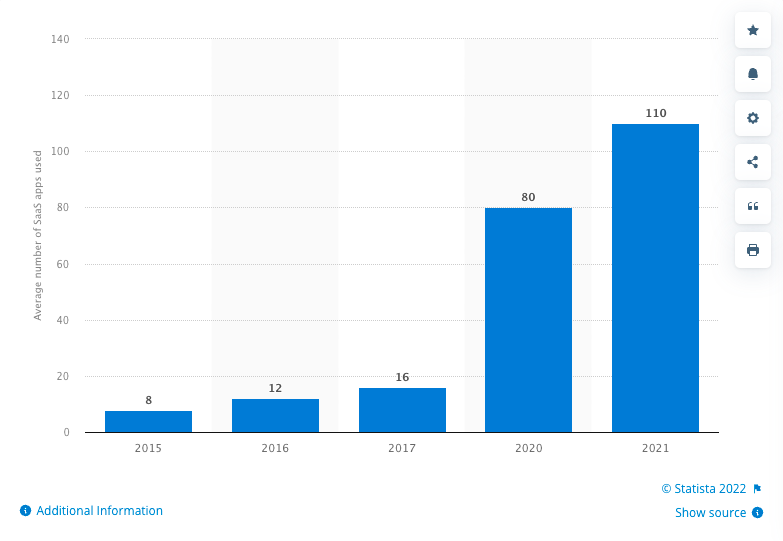Let's be real — there are a lot of options out there for your technology stack. And a lot of great tools like Salesforce, Marketo, Sharpspring, Zendesk, plus many, many more. Of course, if you've paid any attention to our website, social media, blog, or any other platform we use for content, you know that we're firmly on team HubSpot. There are many reasons for that. Let's dive into why we went with HubSpot and why you should too.
Quick Links
In all transparency, I had a hard time whittling this list down. We have been a HubSpot solutions partner for over seven years, and there hasn't been a single day we regretted that decision. It has transformed our agency, changed the way we approach campaigns for clients, and dramatically impacted our thought process on how we run our agency. That being said, I was able to get it down to my top six reasons we love HubSpot and why you will too.
Crafted, not cobbled
There are a million (actually, that may be a dramatic underestimation) tools out there that you could use to run your marketing, sales, service, operations, CRM, and website. In fact, did you know that the average organization utilizes 110 different software as a service (SaaS) tools? That's mind-boggling. How do you keep up with 110 different tools? How do you train your team on 110 different tools? How do you manage 110 different logins (and probably a lot more than that for additional users)? It can get out of control very quickly.
Now, unfortunately, there is no such thing as the one magic software that can handle all of your business processes. There are just too many things that are unique to each industry and business. But, one thing that we really love about HubSpot is the fact that they understand that they can't be everything to everyone, but that they can bring all the marketing, sales, service, CRM, operations, and website tools together under one roof — eliminating at least a dozen tools. They have taken the stance of making everything easy for the most important departments in your organization — marketing, sales, customer service, and operations — so that you can manage your data and campaigns quickly, efficiently, and intuitively.
They also understand that they can't replace all 110 softwares, so they have created one of the most flexible and open SaaS platforms in the world and encourage integrations as often as possible. More on this later.
Consistent interface
HubSpot is a big tool, and it can be intimidating, but one of the best parts about it is that the user interface was really well thought out.
While there are a ton of tools inside of HubSpot and each of the different hubs you may use on a daily basis or maybe just occasionally, the interface was designed to be very intuitive and creates a seamless experience — regardless of Hub. Once you've learned how to use one hub, you've really learned at least 80% of how to use another one because everything is laid out and designed in a way that you can easily find what you need.
Within HubSpot, the standard objects (contacts, companies, deals, tickets) all have a similar layout. The left side of a record is all of the details and properties related to the record. The middle is the activity pane. And the right side is the associations with other records and objects. This three-column design is carried through all objects in HubSpot (and even extends to custom objects if you go a more custom route with your HubSpot onboarding).
Integrations galore
Like I mentioned above, HubSpot has never subscribed to the idea they could be all things to all companies. All-in-one is a myth that is simply unattainable. Instead, they have leaned heavily into being an all-ON-one platform allowing integrations with nearly any tool that you can think of. They have developed an extensive app marketplace with HubSpot-developed and third-party-developed applications to sync data between HubSpot and the tools you need to get your job done. Check out these four popular HubSpot integrations to streamline your work.
And that's not all — while HubSpot invested a lot of resources into building out and expanding their app marketplace, they have also created an open API allowing for integrations with virtually any tool, even if they're not currently in the app marketplace. Through APIs and middleware technologies, you really can integrate any tool with HubSpot.
The inbound methodology
HubSpot got its start through its CRM and marketing hub. When we joined HubSpot over seven years ago, these were the only tools they offered. But even back then, they were robust. HubSpot pioneered the inbound methodology that has since evolved into the flywheel. The entire premise was built around being educational, informative, and, most of all, helpful. They believe that helping consumers (regardless of business or industry) was the way to engage and win business as the shift from salesman-focused selling to buyer-focused selling has taken hold, with more and more consumers doing their research solo.
And that's how they built their tools. They built functional, useful, and helpful tools to support businesses in not just getting their word and message out but doing it in an effective way. They created tools to improve user experience, measure engagement, and create content that supports prospects in their buying journey.
They changed the way that businesses think about marketing and sales by putting the consumer at the center instead of treating them like the output.
Support and community
In my 15 years of professional experience, I have never seen a company as committed and passionate about creating a great customer experience through customer support and building a community to help everyone grow better. At its core, HubSpot is simply a SaaS company, but they've taken it so much further than that. They've developed a support team that is available day and night and can help with any issue, big or small.
They have also developed many communities around HubSpot. The partner community is the one closest to my heart. When I joined HubSpot, I viewed all other agencies as competition. But after getting immersed in the partner community, I realized that we're all in this together. There is enough business for all of us, and we all just want to see each other succeed. Sure there are times when we pitch against another HubSpot solutions partner, but that's part of the deal. With such a wide variety of agencies, specialties, niches, and skill sets, we really don't compete head on with most HubSpot agencies, but we have learned so much from them. Through the Facebook group, coaching sessions, meetups, Slack channels, introductions, and INBOUND (which is back in-person this year 🎉), we have developed amazing relationships with folks at HubSpot and at other agencies that make us better.
The same holds true for HubSpot users. There are tons of resources and forums to support you on your HubSpot journey from Facebook groups, HubSpot's community forum, HubSpot User Groups, Slack channels, and more. Join them, use them, and dive into the HubSpot community — I promise it will make you better at your job.
Scalability
The other day we had a prospect tell us that "HubSpot CMS isn't meant for real businesses" (by which he meant enterprise businesses). I almost tripped over myself rushing to correct him.
For a long time, HubSpot was viewed as the software for startups and small companies. That shifted into the software for small and medium-sized businesses. But it has now shifted into being the software for scaling businesses. They have built their tools in a way that provides value, functionality, and support regardless of whether you're a new startup or a Fortune 100. There is no ceiling to the tools within HubSpot anymore. They are built to grow with your business — and that goes for every single hub.
There is no more "we have to use Salesforce because we're too big for HubSpot." There is no more "Zendesk is the only option for our customer success team." And there is no more "We are stuck with WordPress because it's the only scalable CMS."
With a Free, Starter, Professional, and Enterprise version of each Hub, HubSpot truly is built for scaling businesses — whether you're scaling from a brand new startup or climbing the Fortune list.
If you're in the market for a CRM, marketing, sales, service, operations, or website CMS tools — you're doing yourself and your organization a disservice if you're not strongly considering HubSpot. And if you think HubSpot isn't powerful enough for your organization — you're just flat out wrong. Organizations like Sandler Training, Reddit, SoundCloud, Loom, Coca Cola, Airstream, Calm, GE, Yamaha, Oregon State University, Nextdoor, and many others are using HubSpot with fantastic results. Ready to learn more? Let's chat.



.png?width=100&height=100&name=HubSpot%20for%20K%E2%80%9312%20Education%20How%20Schools%20Use%20HubSpot%20to%20Improve%20Enrollment%20(and%20How%20to%20Set%20It%20Up).png)
.png?width=100&height=100&name=The%20Complete%20Guide%20to%20HubSpots%20Prospecting%20Agent%20(2025%20Edition).png)
